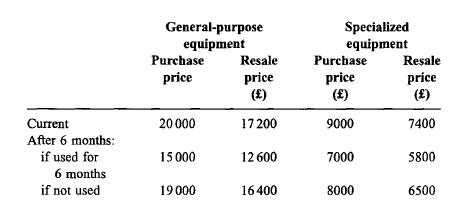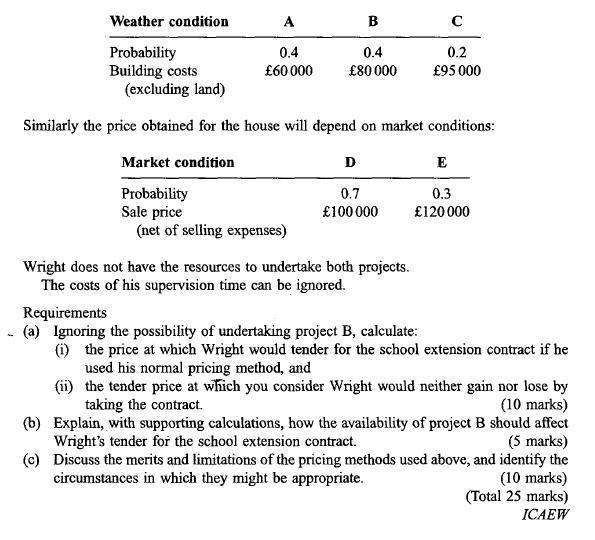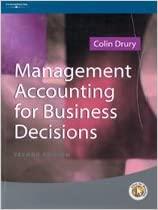Wright is a builder. His business will have spare capacity over the coming six months and he
Question:
Wright is a builder. His business will have spare capacity over the coming six months and he has been investigating two projects. Project A Wright is tendering for a school extension contract. Normally he prices a contract by adding 100% to direct costs, to cover overheads and profit. He calculates direct costs as the actual cost of materials valued on a first-in-first-out basis, plus the estimated wages of direct labour. But for this contract he has prepared more detailed information. Four types of material will be needed:

Z and Y are in regular use. Neither X nor W is currently used; X has no foreseeable use in the business, but W could be used on other jobs in place of material currently costing 16 per unit. The contract will last for six months and requires two craftsmen, whose basic annual wage cost is 16000 each. To complete the contract in time it will also be necessary to pay them a bonus of 700 each. Without the contract they would be retained at their normal pay rates, doing work which will otherwise be done by temporary workers engaged for the contract period at a total cost of 11 800. Three casual labourers would also be employed specifically for the contract at a cost of 4000 each. The contract will require two types of equipment: general-purpose equipment already owned by Wright, which will be retained at the end of the contract, and specialized equipment to be purchased second-hand, which will be sold at the end of the contract. The general-purpose equipment cost 21 000 two years ago and is being depreciated on a straight-line basis over a seven-year life (with assumed zero scrap value). Equivalent new equipment can be purchased currently for 49 000. Second-hand prices for comparable general-purpose equipment, and those for the relevant specialized equipment, are shown below.

The contract will require the use of a yard on which Wright has a four-year lease at a fixed rental of 2000 per year. If Wright does not get the contract the yard will probably remain empty. The contract will also incur administrative expenses estimated at 5000. Project B If Wright does not get the contract he will buy a building plot for 20000 and build a house. Building costs will depend on weather conditions:

Step by Step Answer:






